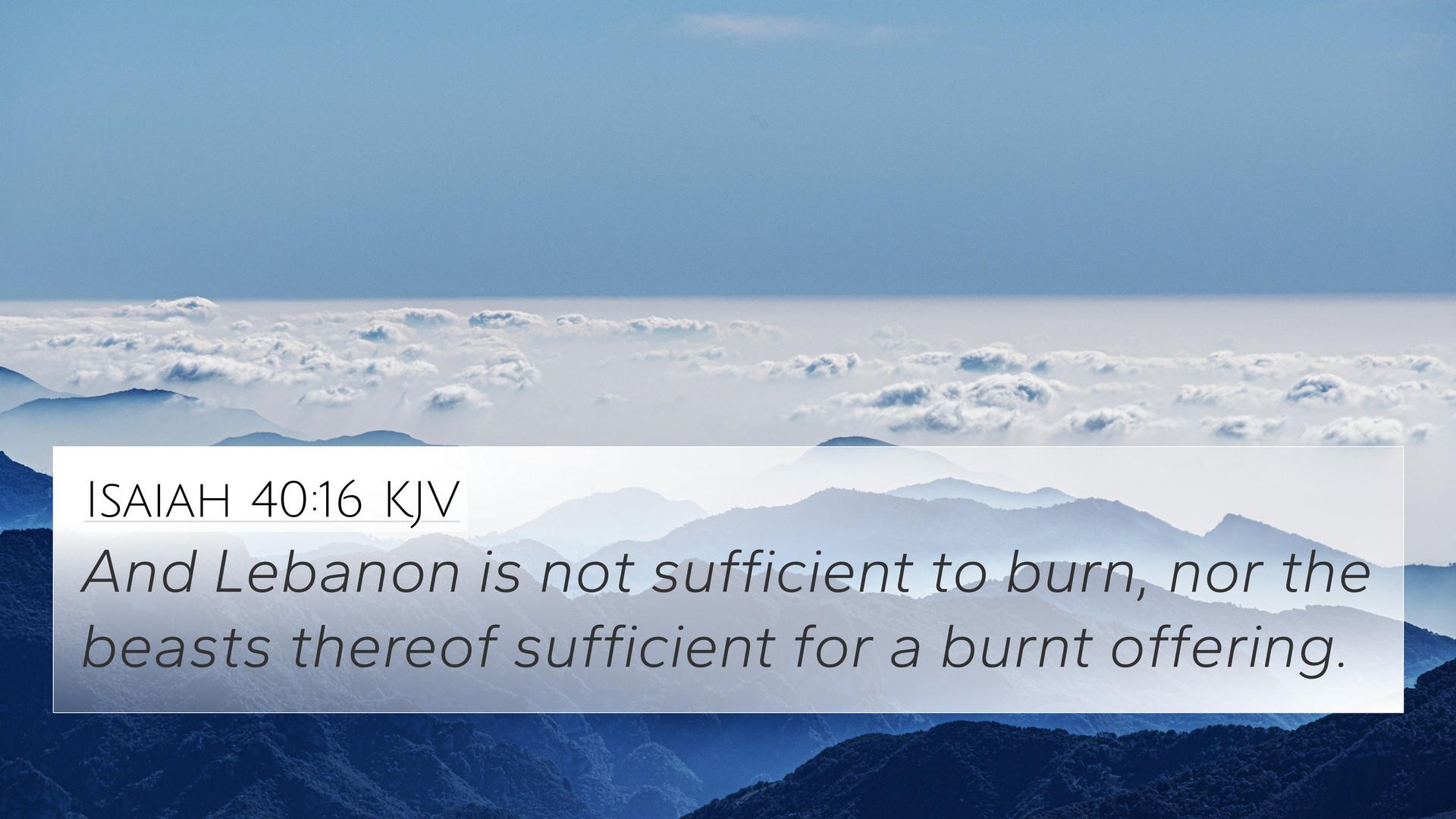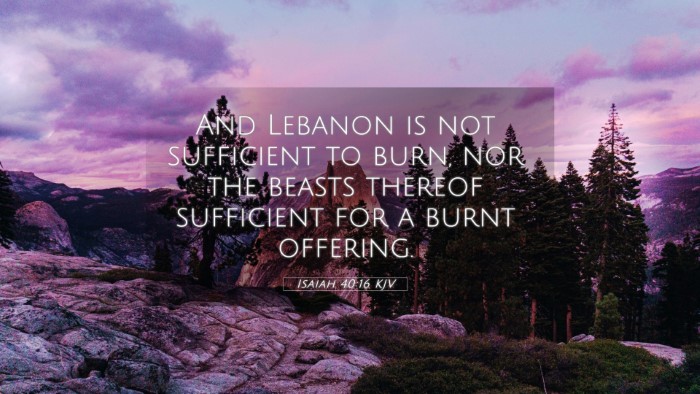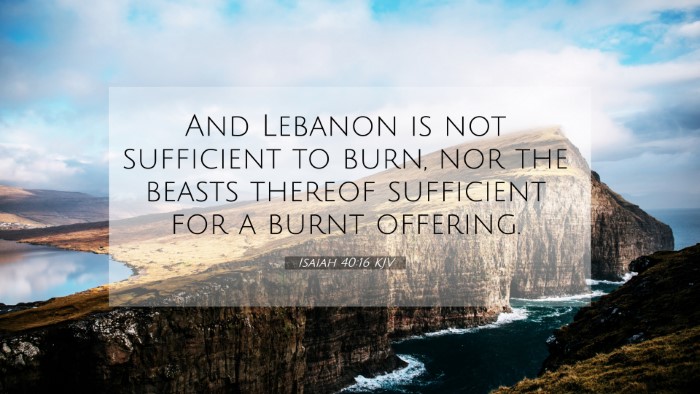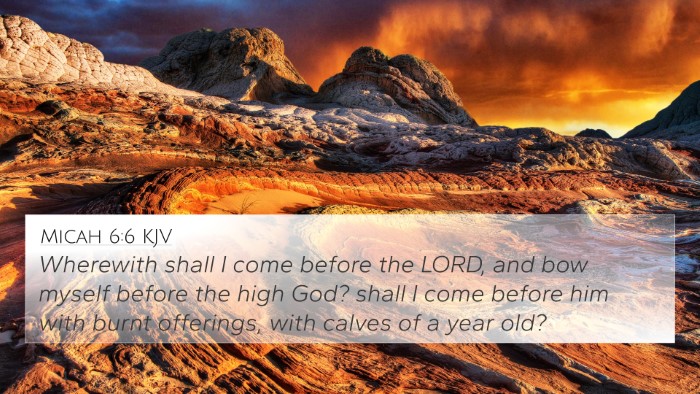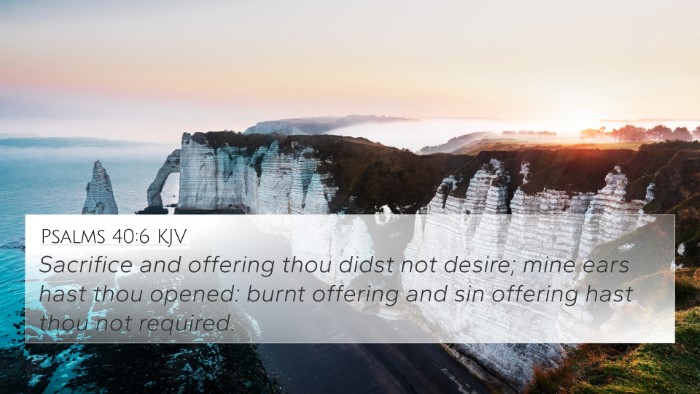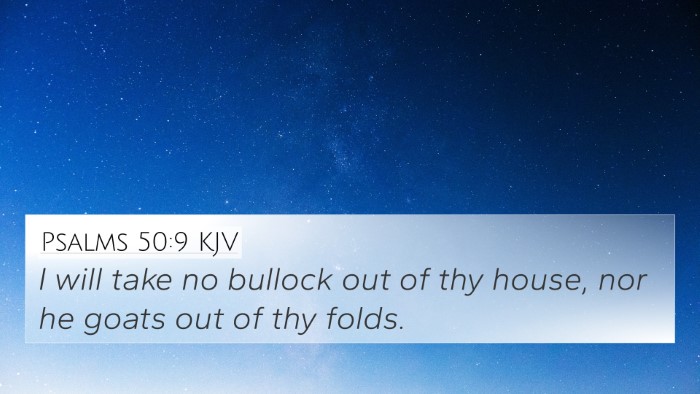Isaiah 40:16 - Meaning and Commentary
Isaiah 40:16 states, "And Lebanon is not sufficient to burn, nor the beasts thereof sufficient for a burnt offering." This verse serves as a poignant reminder of the incomparable greatness of God and the futility of human offerings when contrasted with His divine majesty.
Overview of Insights
- Matthew Henry: Henry emphasizes that no material sacrifices, however grand, can truly reflect the greatness of God. He notes that Lebanon represents the most abundant resources available, yet they fall short of honoring God adequately. This implies that God desires sincere worship over mere physical offerings.
- Albert Barnes: Barnes provides a contextual analysis, highlighting that the verse illustrates the emptiness of ritualistic sacrifices devoid of genuine devotion. He connects this to the overall message of Isaiah, where God calls His people back to heartfelt worship.
- Adam Clarke: Clarke explores the imagery of Lebanon's forests and the beasts as symbols of human effort. He interprets this verse as an assertion that God's needs cannot be satisfied by created things; instead, what He seeks is a contrite heart and spirit from His people.
Thematic Connections
This verse invites a deeper understanding of how human attempts to please God through material means can never truly suffice. It highlights key themes relevant to Bible verse cross-references and connections between scriptures:
- Psalm 50:10-12: God owns all the cattle on a thousand hills, emphasizing His self-sufficiency.
- Micah 6:6-8: Questions the effectiveness of sacrifices and emphasizes that God requires justice, mercy, and humility.
- Hebrews 10:4: States that it is impossible for the blood of bulls and goats to take away sins, underscoring the limitations of sacrifice.
- Isaiah 1:11: God expresses disdain for sacrifices offered without proper motives, calling for righteousness instead.
- Matthew 9:13: Jesus quotes Hosea, saying He desires mercy, not sacrifice, resonating with the message of Isaiah.
- 1 Samuel 15:22: God values obedience over sacrifice, reinforcing the precept that intention matters more than ritualistic practices.
- Romans 12:1: Calls believers to present their bodies as living sacrifices, emphasizing spiritual worship rather than physical offerings.
Connections and Cross-Referencing
The exploration of Isaiah 40:16 can lead to understanding various thematic Bible verse connections and their implications. By engaging in comparative Bible verse analysis, one can uncover:
- How Old Testament sacrificial practices point to the New Testament's fulfillment in Christ.
- The relationship between Old Testament prophets and New Testament teachings about true worship.
- Insights on linking Bible scriptures related to sacrifice and offering across both testaments.
Conclusion
In summary, Isaiah 40:16 illustrates the insufficiency of material offerings compared to the greatness of God. It shifts the focus from external acts of worship to internal dispositions and a sincere relationship with the Divine. Tools for Bible cross-referencing can assist believers in exploring these profound themes further, enriching their understanding of the Scriptures.
